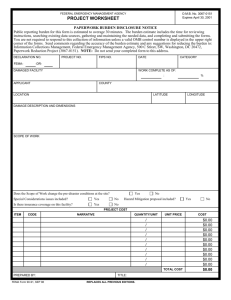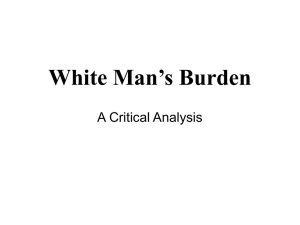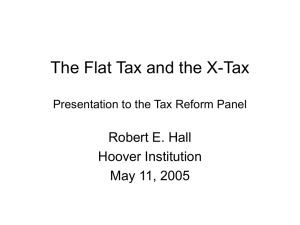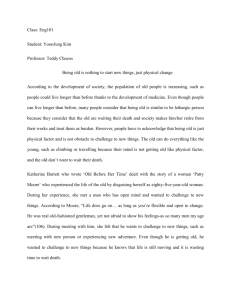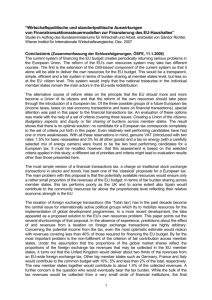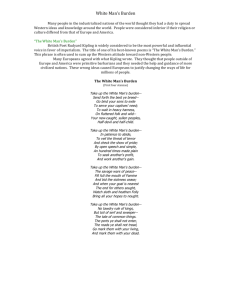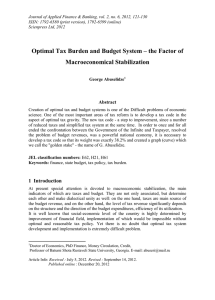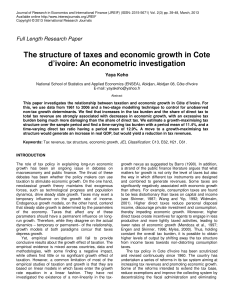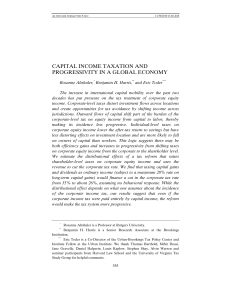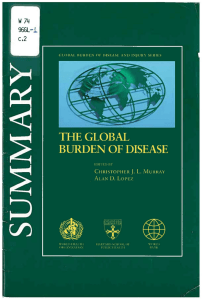W The Good and the Bad
advertisement
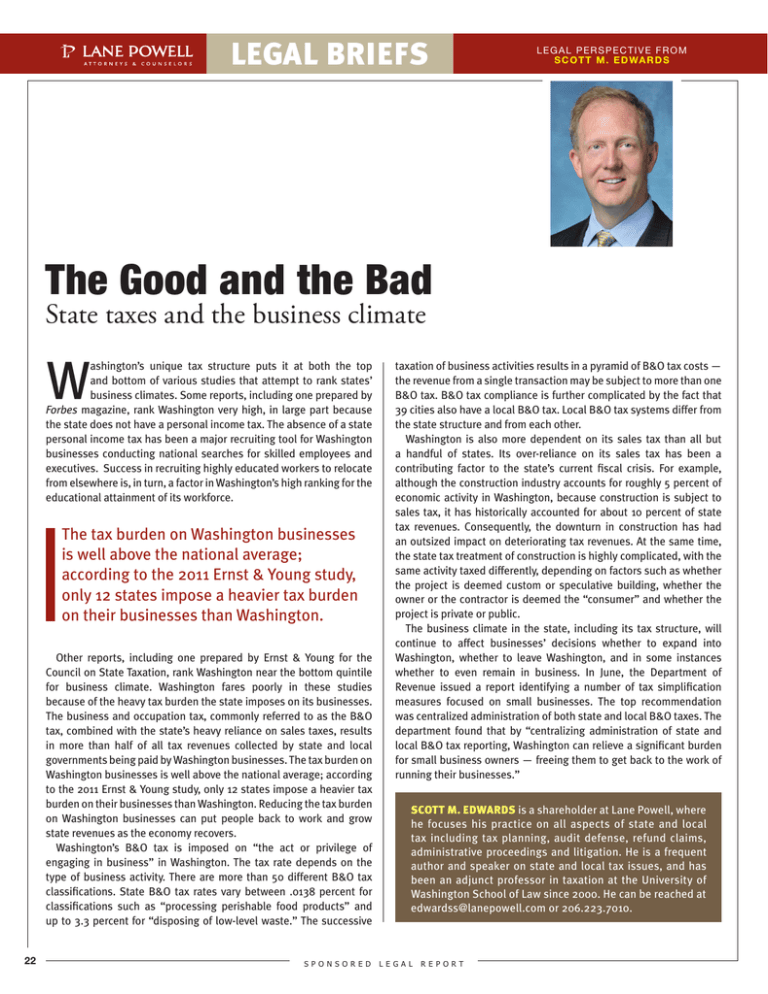
legal briefs legal perspective from scott m. edwards The Good and the Bad State taxes and the business climate W ashington’s unique tax structure puts it at both the top and bottom of various studies that attempt to rank states’ business climates. Some reports, including one prepared by Forbes magazine, rank Washington very high, in large part because the state does not have a personal income tax. The absence of a state personal income tax has been a major recruiting tool for Washington businesses conducting national searches for skilled employees and executives. Success in recruiting highly educated workers to relocate from elsewhere is, in turn, a factor in Washington’s high ranking for the educational attainment of its workforce. The tax burden on Washington businesses is well above the national average; according to the 2011 Ernst & Young study, only 12 states impose a heavier tax burden on their businesses than Washington. Other reports, including one prepared by Ernst & Young for the Council on State Taxation, rank Washington near the bottom quintile for business climate. Washington fares poorly in these studies because of the heavy tax burden the state imposes on its businesses. The business and occupation tax, commonly referred to as the B&O tax, combined with the state’s heavy reliance on sales taxes, results in more than half of all tax revenues collected by state and local governments being paid by Washington businesses. The tax burden on Washington businesses is well above the national average; according to the 2011 Ernst & Young study, only 12 states impose a heavier tax burden on their businesses than Washington. Reducing the tax burden on Washington businesses can put people back to work and grow state revenues as the economy recovers. Washington’s B&O tax is imposed on “the act or privilege of engaging in business” in Washington. The tax rate depends on the type of business activity. There are more than 50 different B&O tax classifications. State B&O tax rates vary between .0138 percent for classifications such as “processing perishable food products” and up to 3.3 percent for “disposing of low-level waste.” The successive 22 Sponsored taxation of business activities results in a pyramid of B&O tax costs — the revenue from a single transaction may be subject to more than one B&O tax. B&O tax compliance is further complicated by the fact that 39 cities also have a local B&O tax. Local B&O tax systems differ from the state structure and from each other. Washington is also more dependent on its sales tax than all but a handful of states. Its over-reliance on its sales tax has been a contributing factor to the state’s current fiscal crisis. For example, although the construction industry accounts for roughly 5 percent of economic activity in Washington, because construction is subject to sales tax, it has historically accounted for about 10 percent of state tax revenues. Consequently, the downturn in construction has had an outsized impact on deteriorating tax revenues. At the same time, the state tax treatment of construction is highly complicated, with the same activity taxed differently, depending on factors such as whether the project is deemed custom or speculative building, whether the owner or the contractor is deemed the “consumer” and whether the project is private or public. The business climate in the state, including its tax structure, will continue to affect businesses’ decisions whether to expand into Washington, whether to leave Washington, and in some instances whether to even remain in business. In June, the Department of Revenue issued a report identifying a number of tax simplification measures focused on small businesses. The top recommendation was centralized administration of both state and local B&O taxes. The department found that by “centralizing administration of state and local B&O tax reporting, Washington can relieve a significant burden for small business owners — freeing them to get back to the work of running their businesses.” scott m. edwards is a shareholder at Lane Powell, where he focuses his practice on all aspects of state and local tax including tax planning, audit defense, refund claims, administrative proceedings and litigation. He is a frequent author and speaker on state and local tax issues, and has been an adjunct professor in taxation at the University of Washington School of Law since 2000. He can be reached at edwardss@lanepowell.com or 206.223.7010. Legal Report
